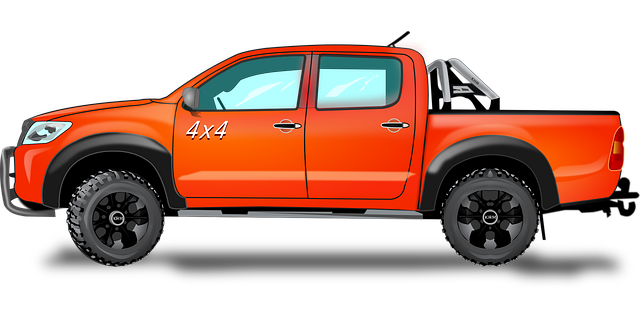ABS (Anti-lock Braking System) sensors are essential safety features for McAllen truck and SUV enthusiasts, preventing wheel lockup during emergency stops or slippery road conditions. These sensors monitor wheel speed, enabling precise control and stability, especially on challenging terrains. Understanding ABS sensor functionalities, regular maintenance (including checks for damage, fluid levels, and voltage), and addressing issues like unusual noises or vibrations are crucial for optimal vehicle performance and safety. McAllen enthusiasts should prioritize these practices to ensure reliable driving experiences both on and off-road.
McAllen truck and SUV enthusiasts, explore the vital role of Anti-Lock Braking System (ABS) sensors in your vehicles. This comprehensive guide offers a basic overview, delving into how ABS enhances modern vehicle safety, the types of sensors involved, and common troubleshooting tips. From maintaining your system to enhancing off-road performance, discover best practices for keeping you and your ride safe on McAllen’s roads and beyond.
- Understanding ABS Sensors: A Basic Overview for McAllen Truck & SUV Enthusiasts
- The Role of ABS in Modern Vehicles: How It Improves Safety
- Types of ABS Sensors: Different Components, Same Goal
- Diagnosing ABS Issues: Common Problems and Troubleshooting Tips
- Maintaining Your ABS System: Regular Checks and Best Practices
- ABS Sensors in McAllen's Off-Road Adventures: Enhancing Performance and Control
Understanding ABS Sensors: A Basic Overview for McAllen Truck & SUV Enthusiasts

ABS sensors are a critical component in modern vehicles, designed to enhance safety for McAllen truck and SUV enthusiasts. These sensors monitor wheel speed, providing real-time data to the vehicle’s anti-lock braking system. By detecting any sudden changes or variations in wheel rotation, ABS sensors enable drivers to maintain control during emergency stops or slippery road conditions. This technology prevents wheels from locking up, allowing for better steering and reduced stopping distances.
For McAllen truck and SUV owners, understanding how ABS sensors function can foster a deeper appreciation for the advanced safety features in their vehicles. It empowers them to make informed decisions when it comes to maintaining and upgrading their brakes, ensuring optimal performance on Texas roads.
The Role of ABS in Modern Vehicles: How It Improves Safety

ABS, or Anti-lock Braking System, is an essential safety feature in modern vehicles, particularly for McAllen truck and SUV enthusiasts. It plays a crucial role in enhancing driving stability and preventing skidding during emergency stops or on slippery road conditions. By monitoring wheel speed, ABS detects when wheels are locking up and activates pressure pulses to individual brakes, allowing drivers to maintain control and steer effectively. This system is especially valuable for those who drive in diverse terrain or adverse weather conditions, ensuring a safer experience on the road.
For McAllen truck and SUV owners, ABS offers peace of mind while driving at high speeds or towing heavy loads. It helps prevent wheels from locking up when braking suddenly, giving drivers an improved chance to navigate through challenging situations. This advanced technology has significantly contributed to reducing accidents and improving overall vehicle safety, making it a must-have feature for any automotive enthusiast prioritizing their well-being on the road.
Types of ABS Sensors: Different Components, Same Goal

ABS sensors are a crucial component for mcallen truck and SUV enthusiasts, offering enhanced safety and control on the road. These sensors come in various types, each playing a distinct role in achieving one primary goal: preventing wheel lock during braking, thereby improving vehicle stability and stopping power.
The primary types include speed sensors that monitor wheel rotation, pressure sensors that detect brake fluid pressure, and shaft position sensors that track the position of the ABS pump. For mcallen truck and SUV owners, understanding these sensor functionalities is key to maintaining optimal performance and safety features. By keeping these components in good working order, enthusiasts can enjoy confident driving, knowing their vehicles are equipped to handle various road conditions with precision and efficiency.
Diagnosing ABS Issues: Common Problems and Troubleshooting Tips

McAllen truck and SUV enthusiasts who are familiar with their vehicle’s Anti-lock Braking System (ABS) know that it plays a critical role in ensuring safe driving conditions, especially during emergency stops or on slippery roads. Diagnosing ABS issues is crucial for maintaining optimal vehicle performance and safety. Common problems include strange noises while braking, pulsing or vibrational sensations in the pedals, and vehicles pulling to one side when braked. These symptoms could indicate faulty sensors, damaged brake lines, or worn-out brake pads.
Troubleshooting tips for McAllen drivers involve checking for obvious signs of damage or leaks around the ABS components. It’s also essential to inspect the brake fluid levels; low fluid can lead to ABS malfunction. Using a multimeter to test the voltage at each wheel hub assembly is another effective method. If any reading is significantly off, it could indicate a faulty sensor. Additionally, consulting a professional mechanic for advanced diagnostic tools and expertise is advisable when dealing with complex ABS issues.
Maintaining Your ABS System: Regular Checks and Best Practices

Maintaining your ABS (Anti-lock Braking System) is crucial for safe driving, especially for McLennan truck and SUV enthusiasts. Regular checks are essential to ensure the system’s optimal performance when it matters most. Here are some best practices to keep your ABS in top shape: start by inspecting the brake fluid levels regularly; this simple step can prevent costly repairs. Any signs of contamination or low levels should be addressed promptly, as these issues can compromise the entire ABS mechanism.
Additionally, keeping a keen eye on any unusual noises or vibrations during braking is vital. These could indicate worn-out components within the ABS system. Regular driving dynamics checks, including wheel alignment and balanced tires, are recommended to maintain the system’s efficiency. McLennan SUV and truck owners should also consider professional diagnostic scans to identify potential issues early on, ensuring a safe and reliable driving experience.
ABS Sensors in McAllen's Off-Road Adventures: Enhancing Performance and Control

For McAllen’s truck and SUV enthusiasts, off-road adventures are more than just a hobby—it’s a way of life. In this thrilling landscape, where rugged terrain meets unpaved paths, Anti-lock Braking System (ABS) sensors play a pivotal role in enhancing performance and control. These advanced technology components are designed to revolutionize the driving experience by ensuring maximum traction and stability during challenging drives.
By accurately monitoring wheel speed and detecting rapid changes that could indicate lockup, ABS sensors enable drivers to navigate treacherous obstacles with confidence. For McAllen’s adventurous souls, this means better handling, reduced risk of rollovers, and improved overall safety while exploring the vast and varied terrain beyond city limits. Whether it’s a mud-covered trail or a rocky ascent, these sensors work tirelessly to keep truck and SUV enthusiasts safe and in control.
For McAllen truck and SUV enthusiasts, understanding Anti-Lock Brake System (ABS) sensors is key to navigating both everyday drives and off-road adventures safely. By familiarizing themselves with these critical components, drivers can ensure optimal performance, enhanced control, and improved safety features. Regular maintenance and timely troubleshooting of ABS issues are essential practices for all vehicle owners, allowing them to maximize the benefits of this advanced technology in McAllen’s diverse driving environments.



